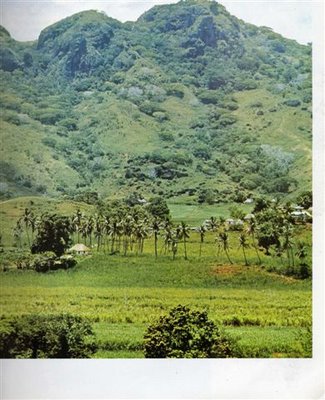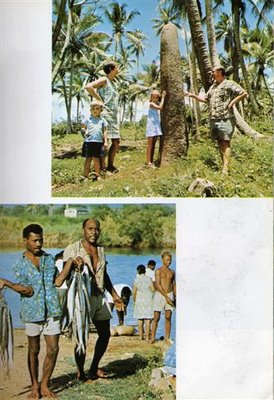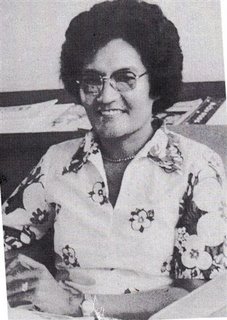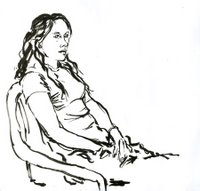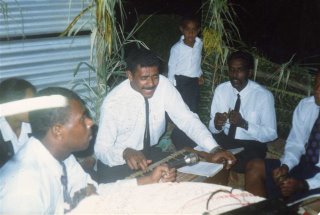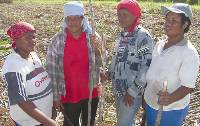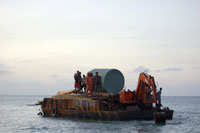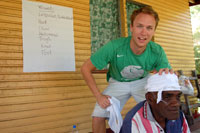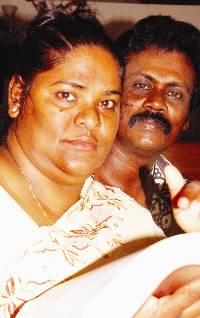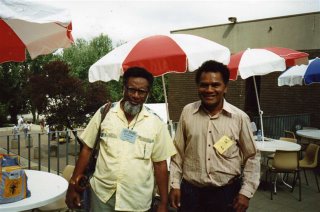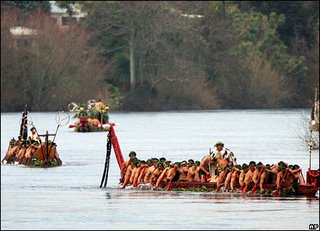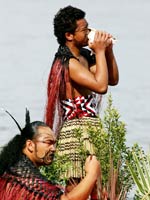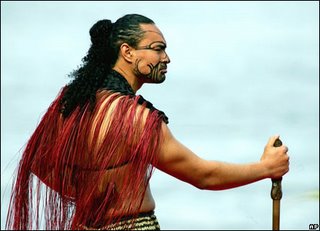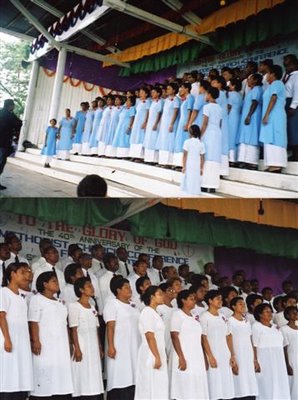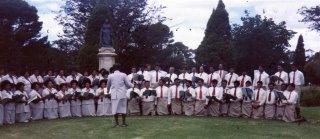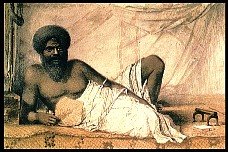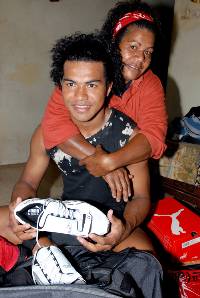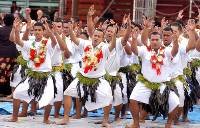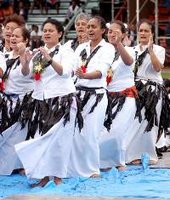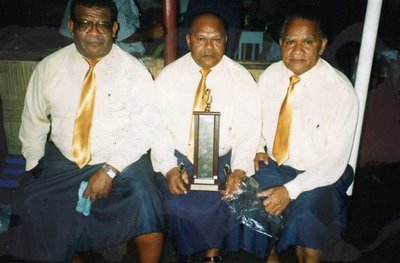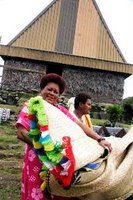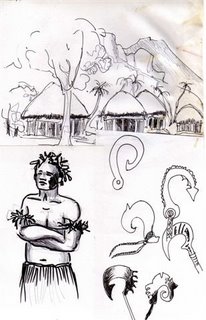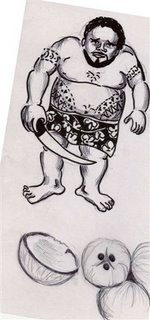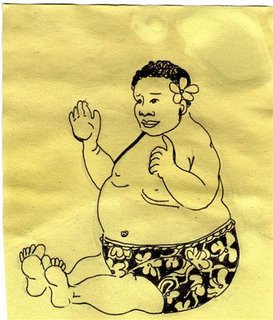A nurse told me what happened to her one day and I have adapted it into the following short story.
W.
Nanumi SigaI was going off duty when the matron spoke to me in her usual rattling pace. 'Nanumi, I'm going away to Suva for two days. Can you check on my flat? There's some wild lads in the town who break in. I don't want my things disturbed. You can sleep there.'
'Thanks.' After our crowded quarters with six of us falling over one another I decided that this would give me some restful space so I took the key! 'I'll spend the weekend there as I'm off duty too.'
The two bedroom flat was one of those typical male-designed spaces in blunt concrete. I asked Pinky, an Indo-Fijian nurse, if she would sleep over there too.
It was a windy night and I was restless. The weather forecaster had warned of a cyclone 500 k west of us. We would be in for a blow within twenty-four hours unless the cyclone swung away over the sea. I'm used to cyclones because I come from a small island, not this sugarcane town.
I felt a kind of paralysis that saps the body when you're really asleep. My bed was directly under a large window. I saw two large smudges emerging from a dark grove of banyan trees. Two figures floated over the fields, pushing the stalks aside as she came nearer. They were two tall women with wild hair, in shabby clothes; not the neat cottons and smooth fabrics we wear today, but bark-cloth wrapping. White and orange streamers waved from their arms and waists showing their chiefly status.
One beckoned to me and smiled. She had bright blue eyes. The other glared at me with fierce dark eyes. When her arms reached out to touch me my breath just stopped, so enormous was my fear.
I threw off the blanket and ran to the other bedroom. 'Pinky! There are two ghosts outside!'
She murmured, 'Go back to sleep. It's only a bad dream.'
The figures outside dissolved and all I saw was a field of sugarcane and the wind thrashing on the window.
I lay down again but my mind drifted back to my island to find a calm centre by focussing on a pleasant memory. However all I could imagine was a dark brown sludge in our island lake. Instead of seeing children playing on the beach and the aunts singing as they plaited mats, I saw a mystery lake, a place we were banned from visiting. When I looked closer, a large writhing snake was surrounded by hundreds of smaller wriggling snakes. Our ancestor god was telling me to pick up one and touch it but I could not!
My name Nanumi means 'to remember.' When I asked my father where my name came from, he had told me that his grandfather who often sat in a rocking chair like some of the vavalagi people do, told him to name the next child, Nanumi Siga, meaning 'to remember the god Siga' because the Fijian gods have been forgotten.
I could not sleep, aware that out there, near the cane fields were the two goddesses, who had carried the large stones across the mountains to a place nearby.
The matron's flat was on the edge of a deep valley of farms but beyond there was a sacred grove, a place where no-one ever intruded except children looking for coconuts or mangoes to knock down, or some curious tourists who should not go there either. The Land Tribunal was in the middle of a legal argument about clearing this area for more cane farms. The chief was resisting such change. 'It was a sacred place, where gods once walked,' he'd said. There were photos in the papers and an American man had written a book about it. There seven large grey stones, two upright, but five lying prone in the grass but in a rectangular formation with smaller stones and platforms. A temple once stood there A men's place, but their gods had been two women.
I'd walked near that site twice when women in the village were in labour and refused to come into the hospital to deliver.
I'd heard some of the stories of the two goddesses from patients in the Psych ward. There were other stories of two chiefly sisters, one about the girl who turned into a bat at Macuata-i-wai Island. These two sisters were chased away from their mountain village by their angry father over a matter of uncooked yams. Some of our stories get mixed up and are told differently.
Now I have seen for myself the two goddesses of Wasavulu, but Pinky did not believe me.
At dawn, I threw my clothes into my bag and fled back to the safety of the crowded nurses' quarters as Pinky walked with me. I wondered then if she ever dreamt of or saw with her own eyes, Krishna, Lakshmi or Rama.
She answered, 'No, I'm a modern girl. I've left all that behind!'
But I don't think we ever leave all of that behind. It's still with us, like a strange wind that sometmes moves in a wave over the canefields.
